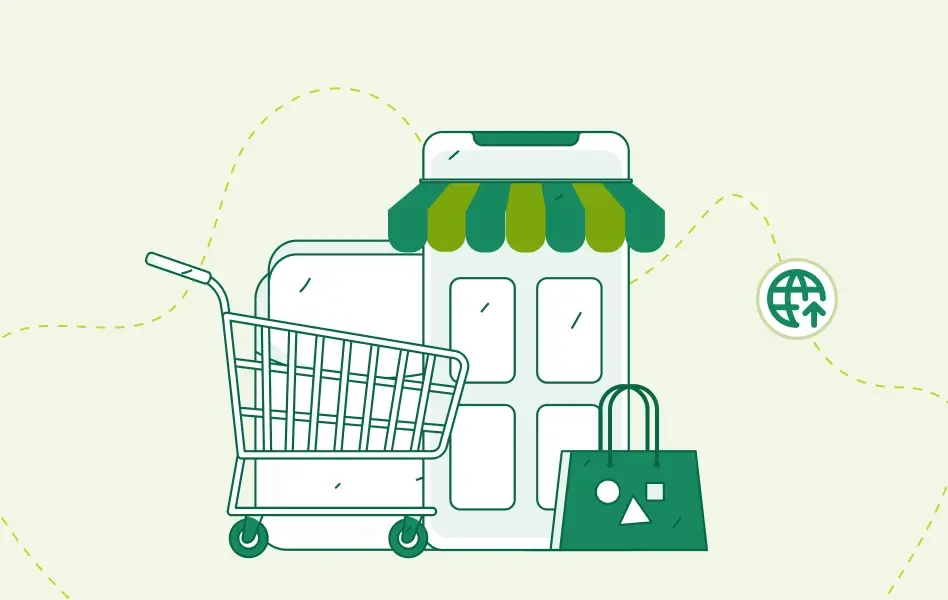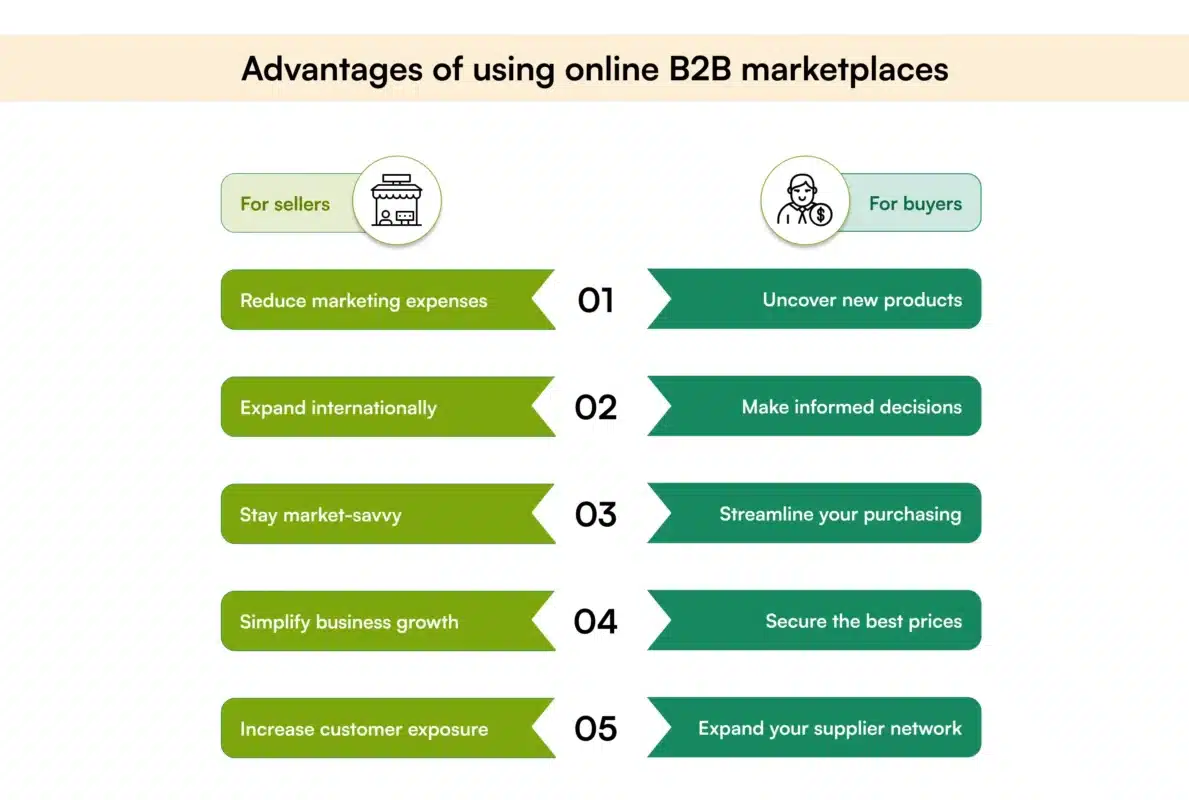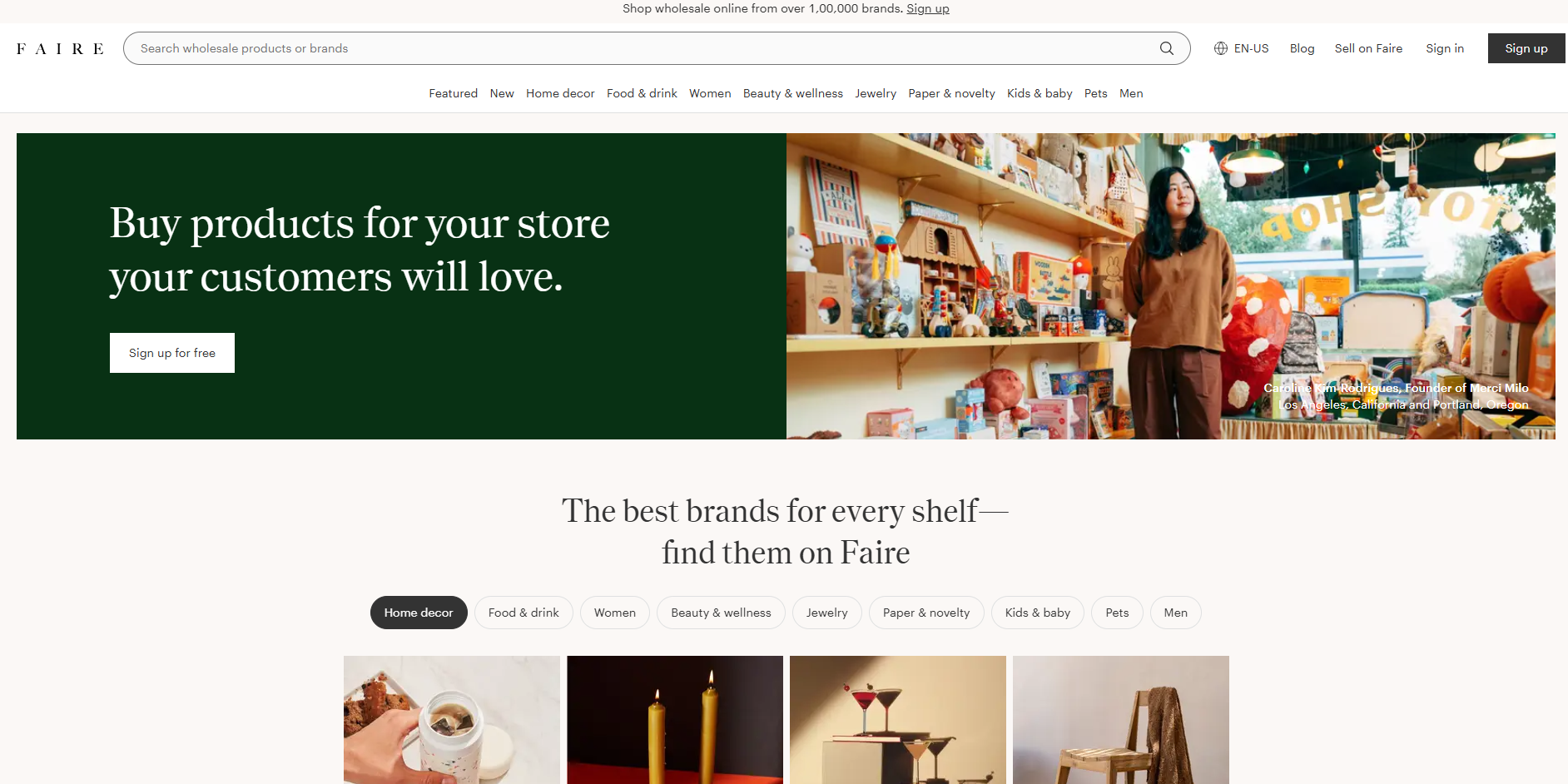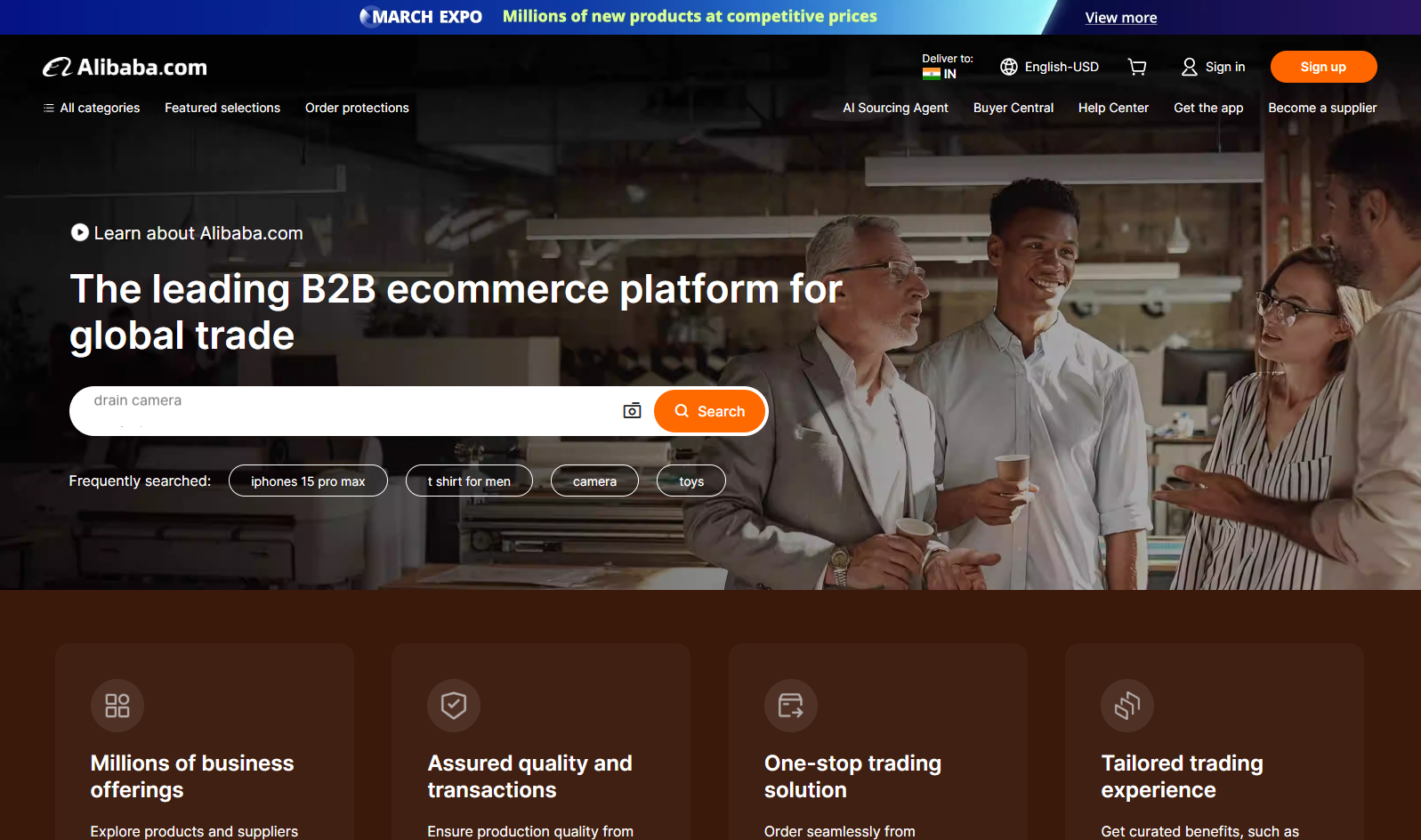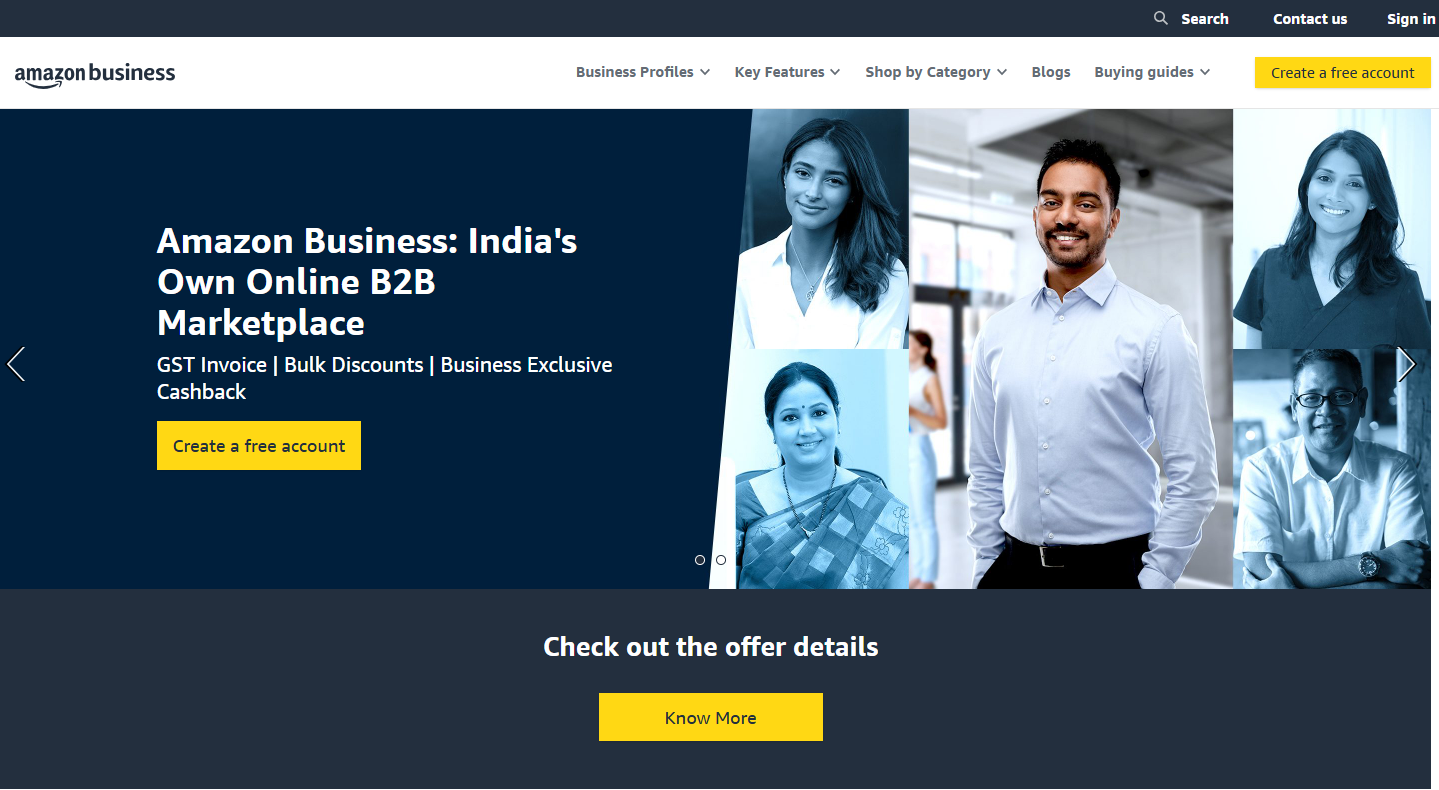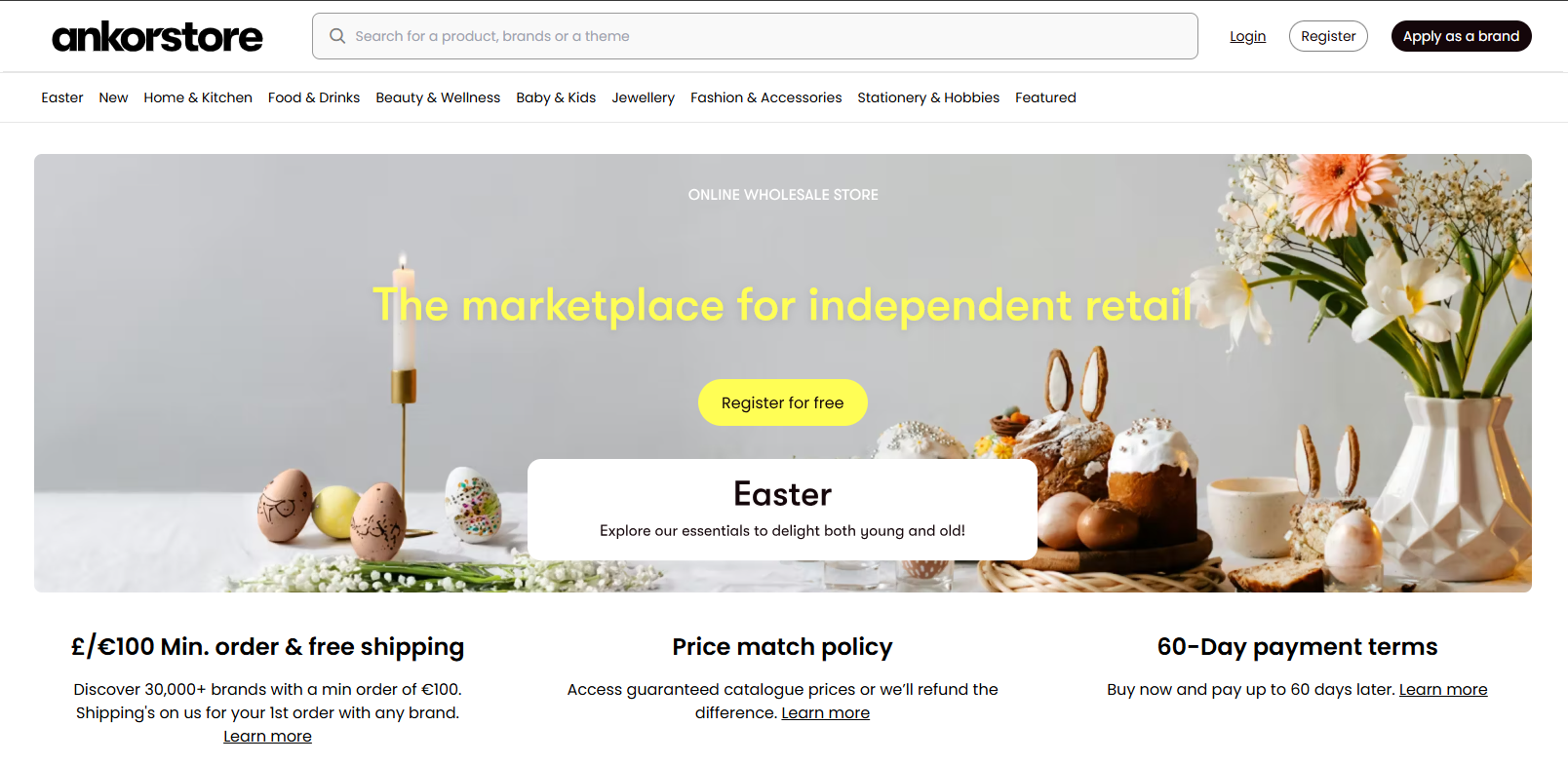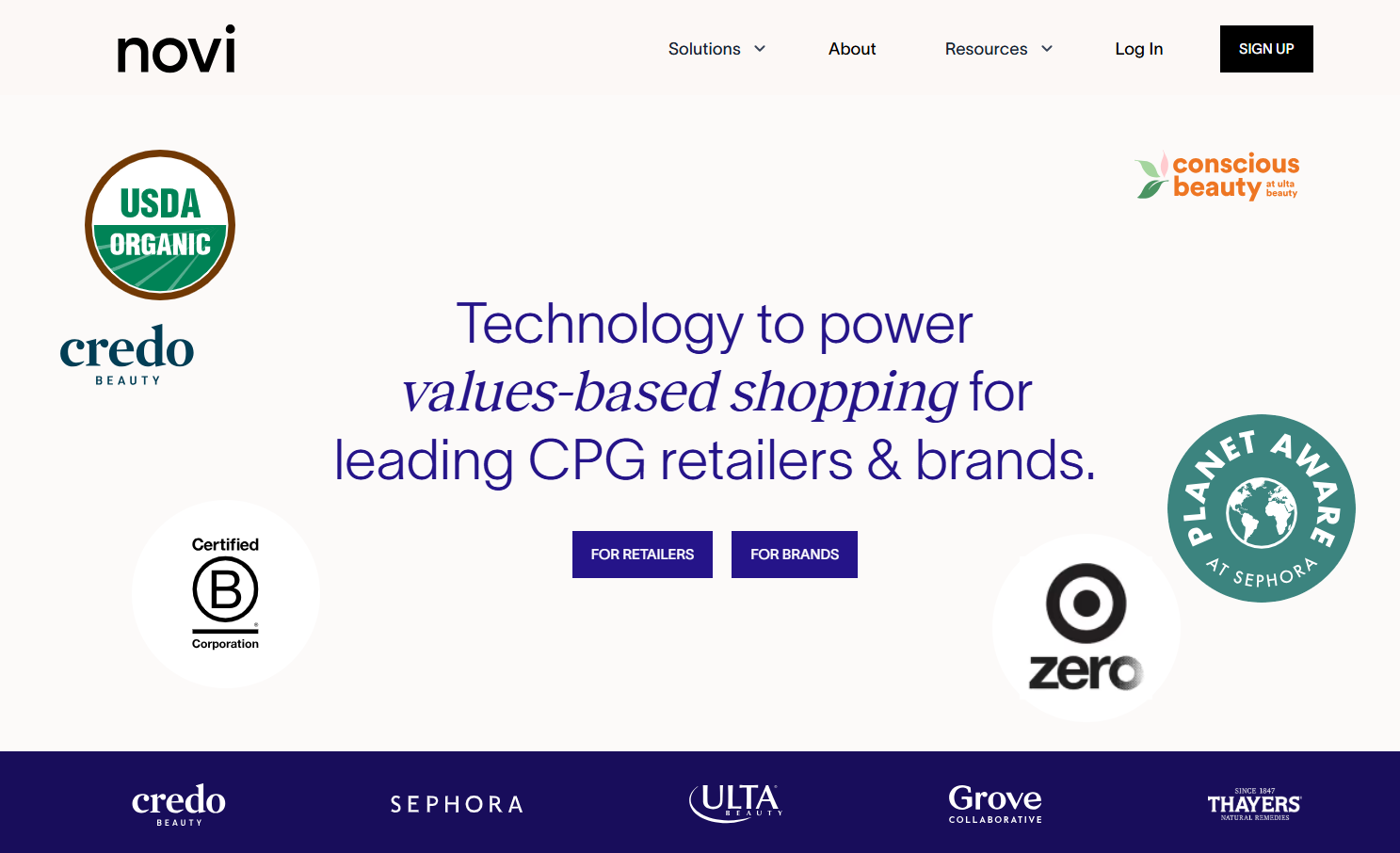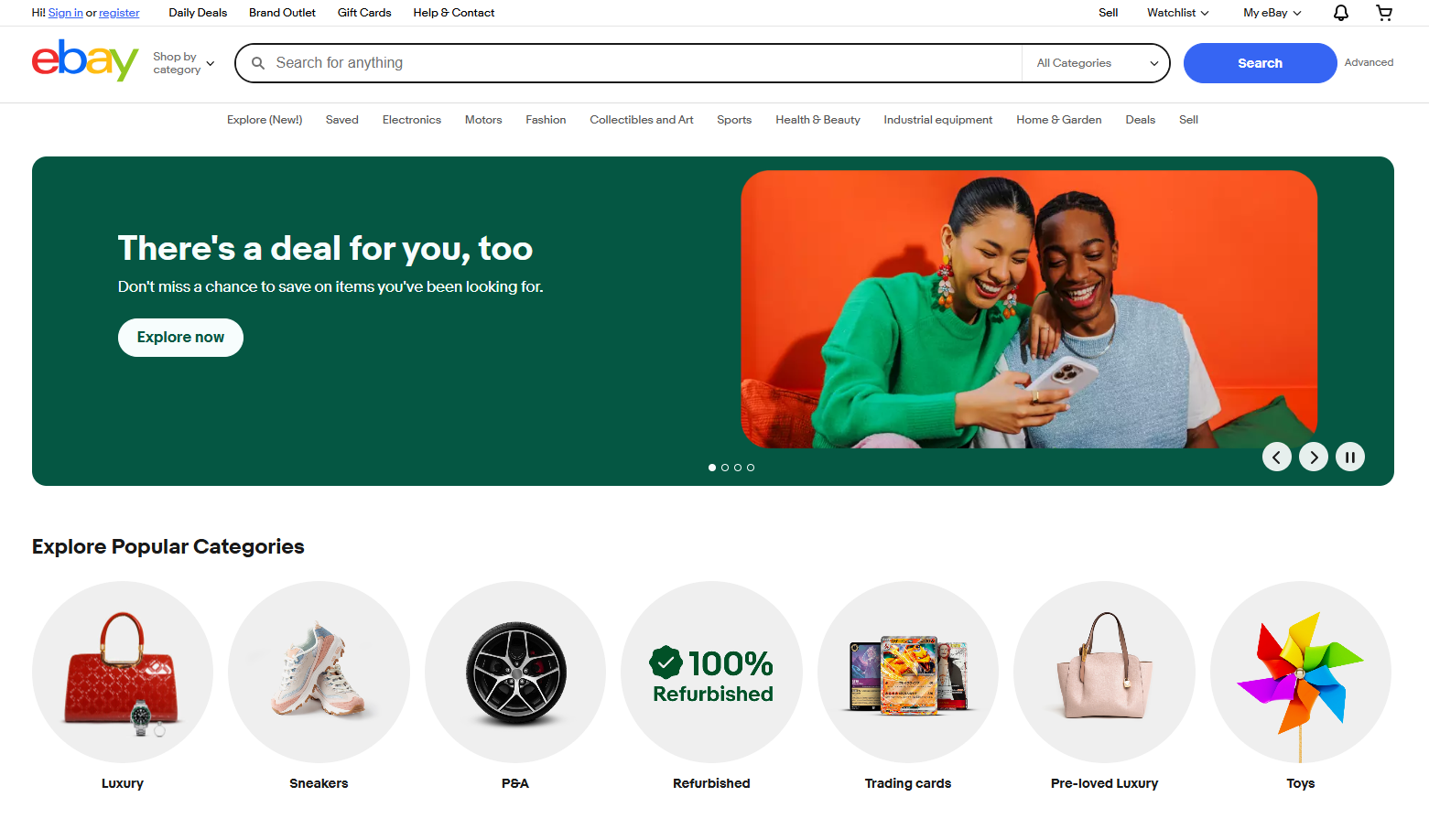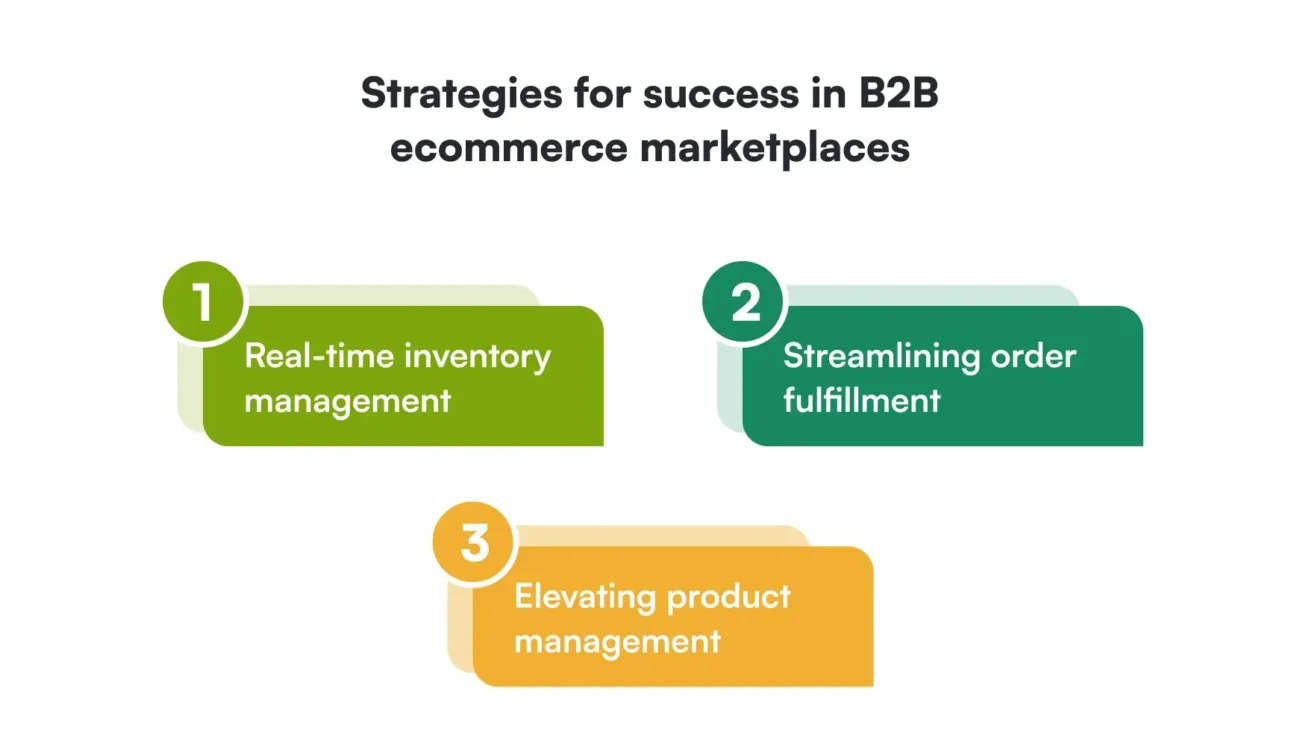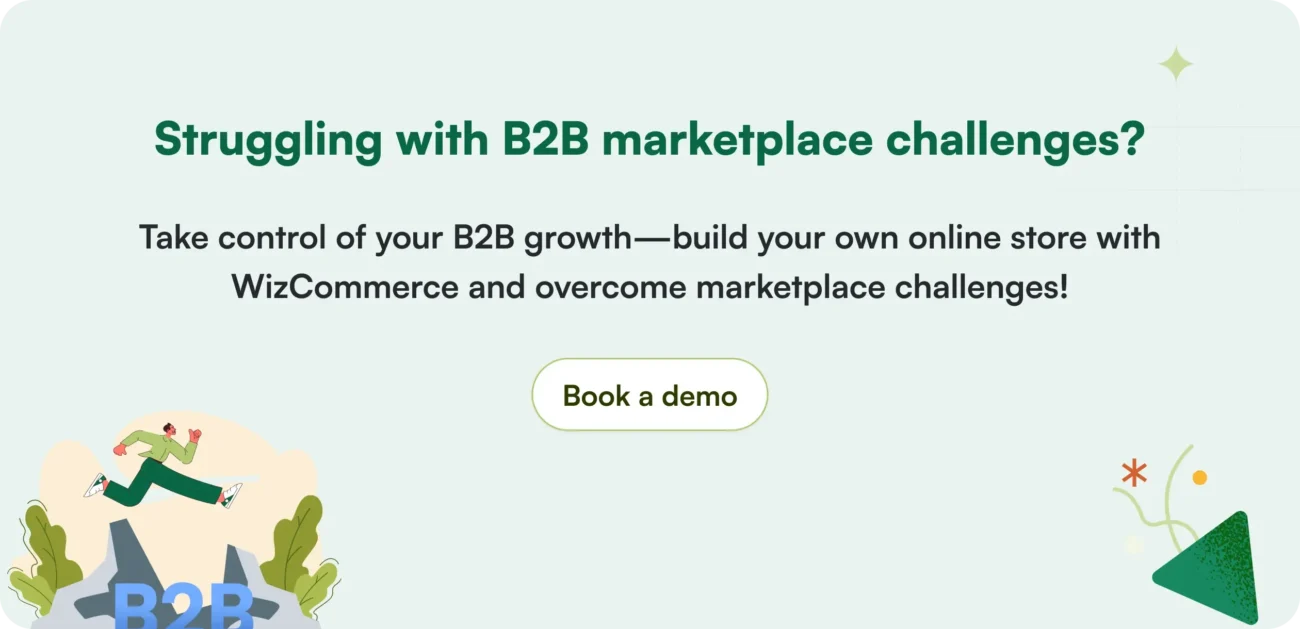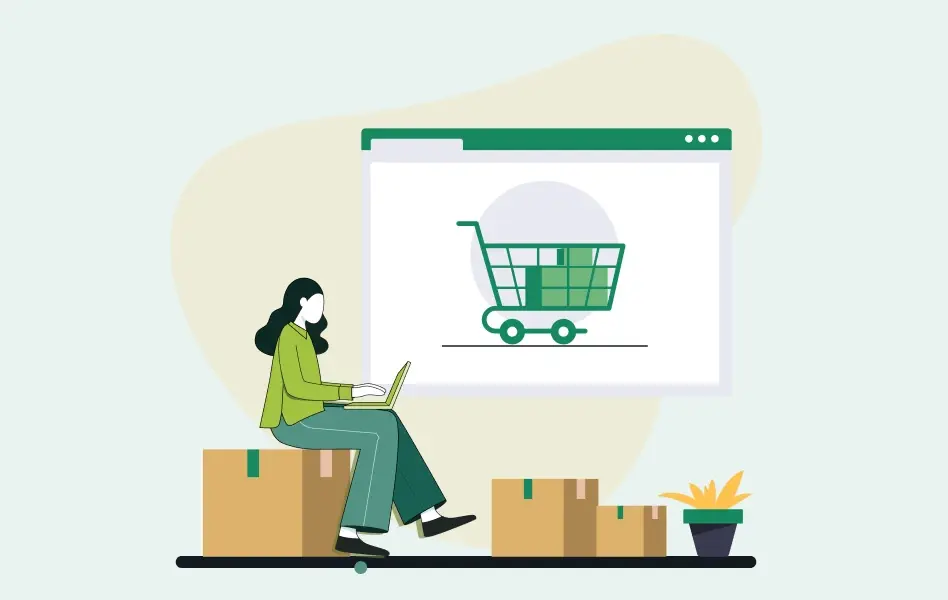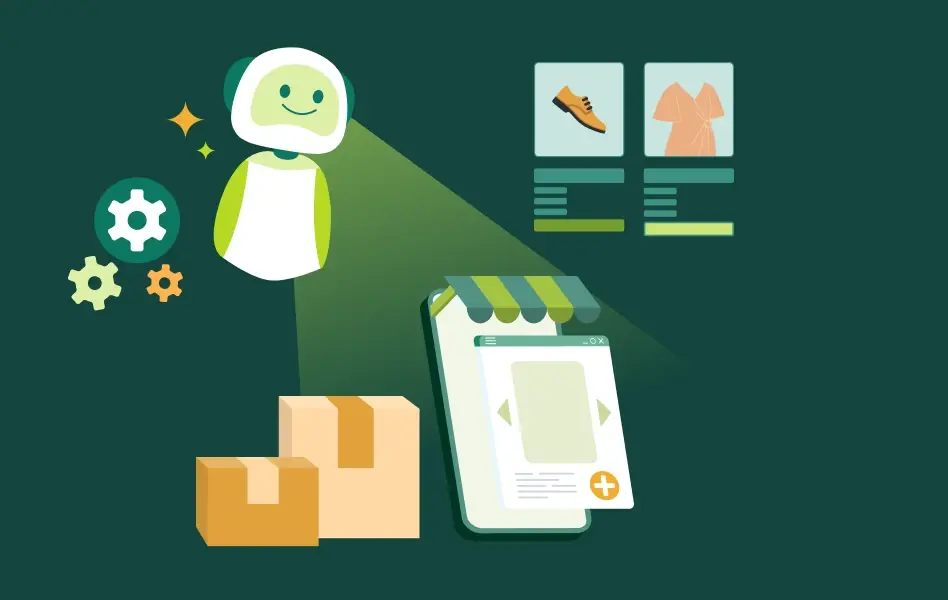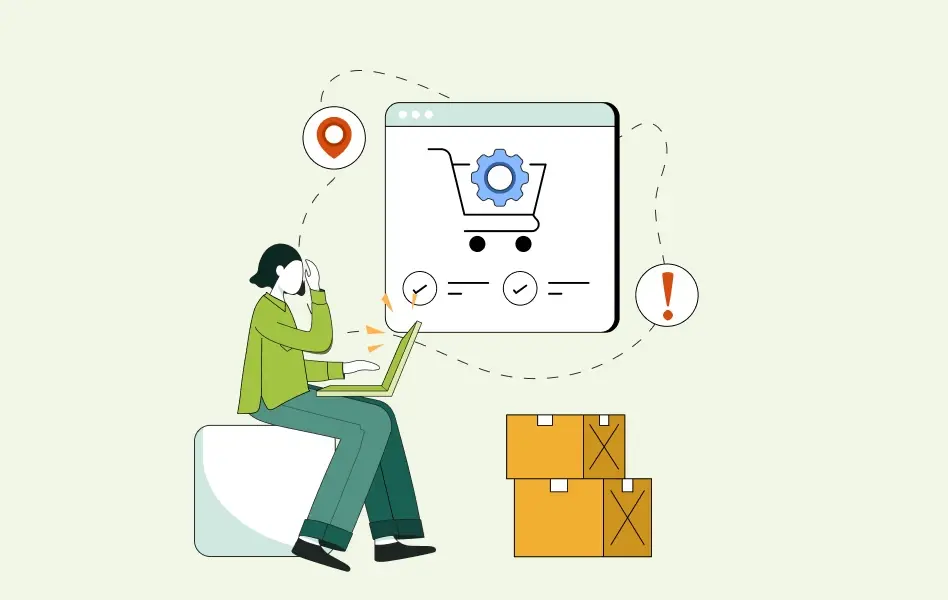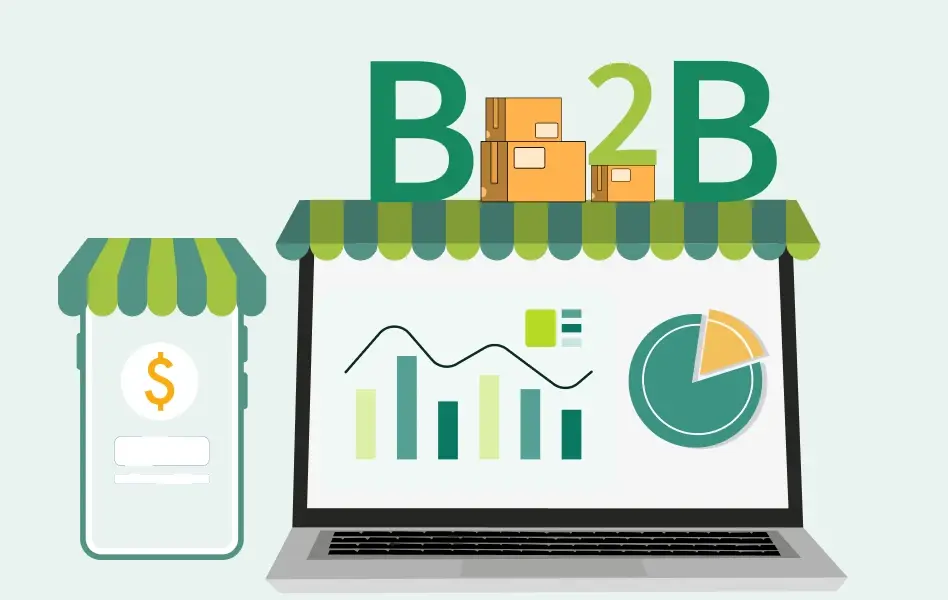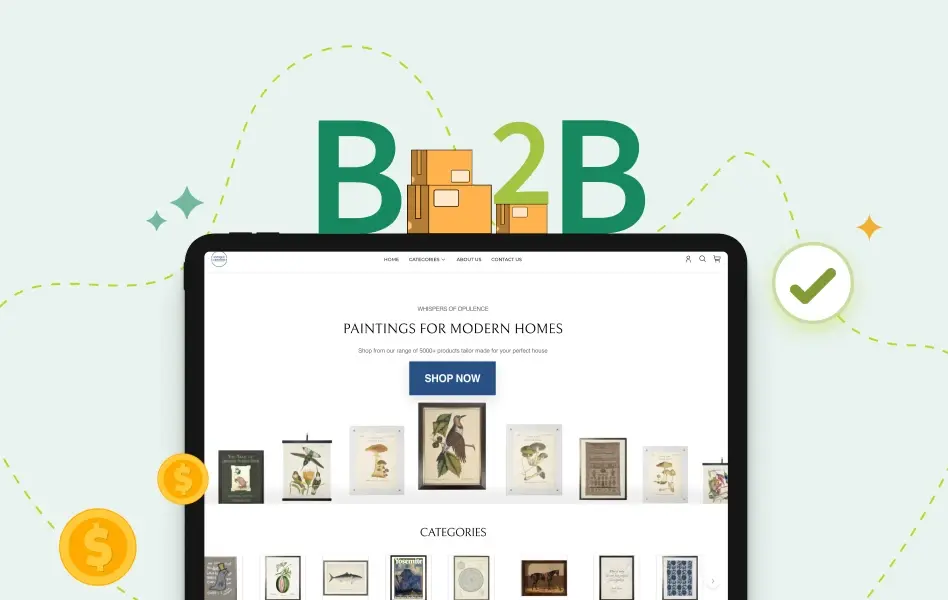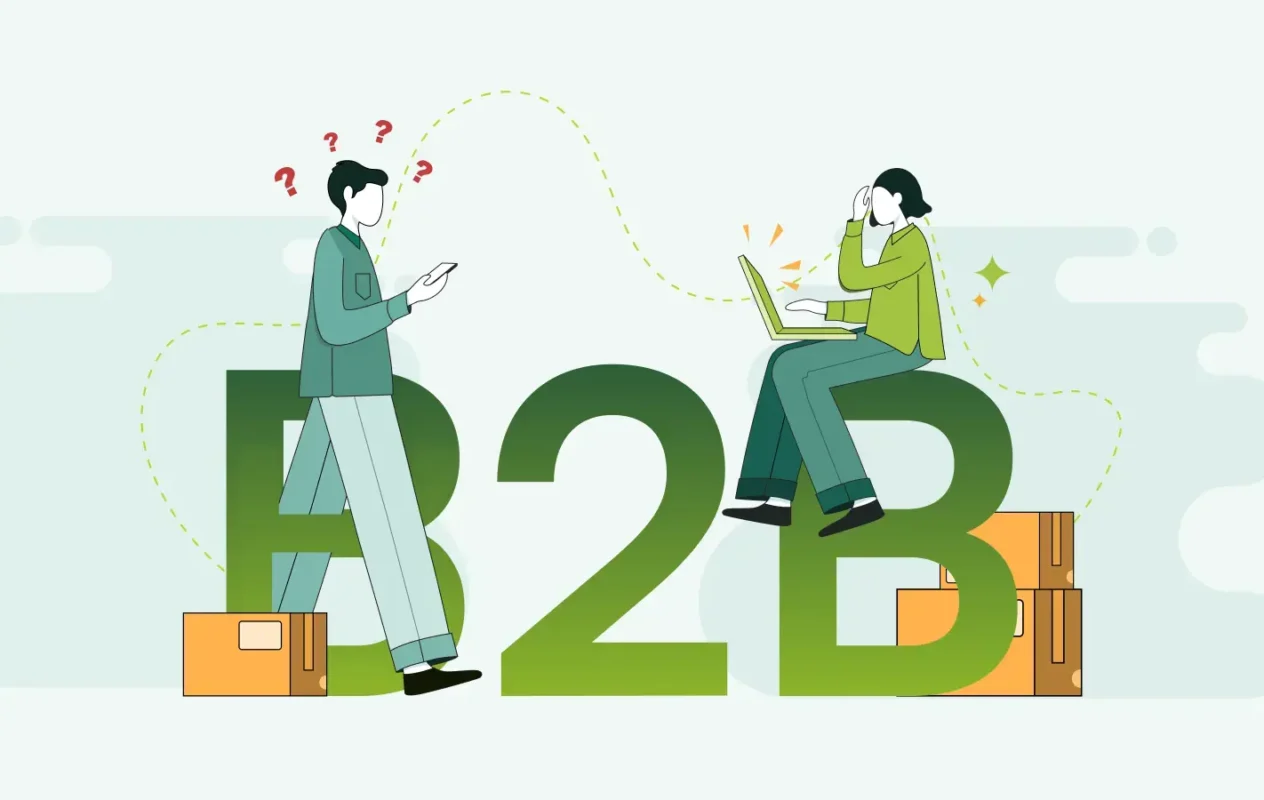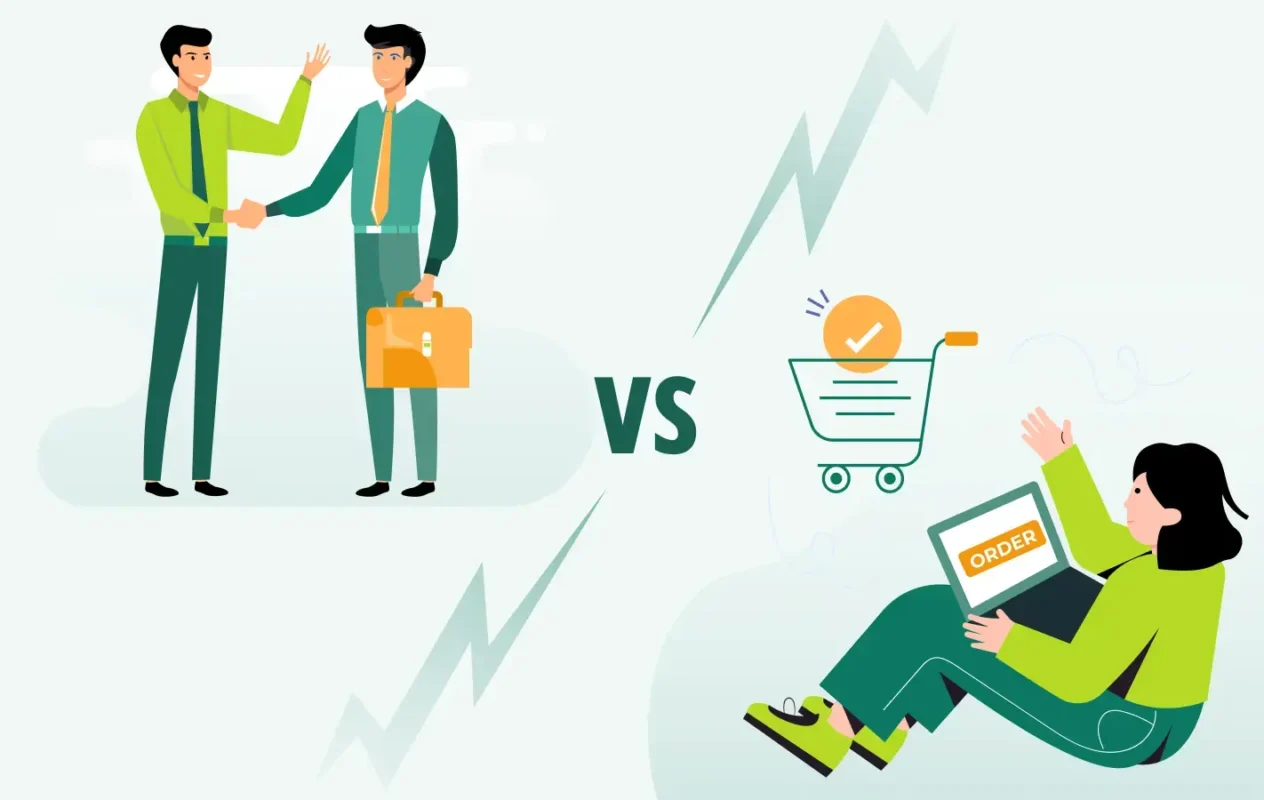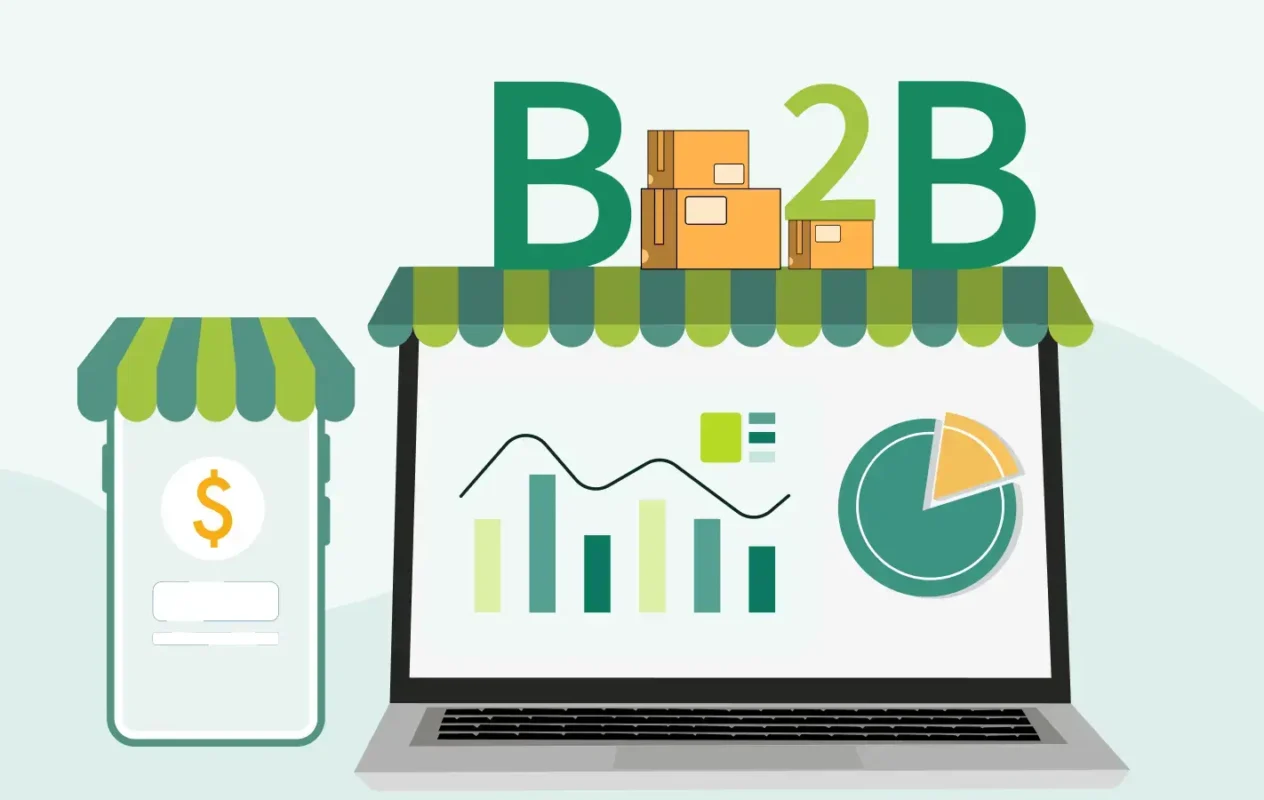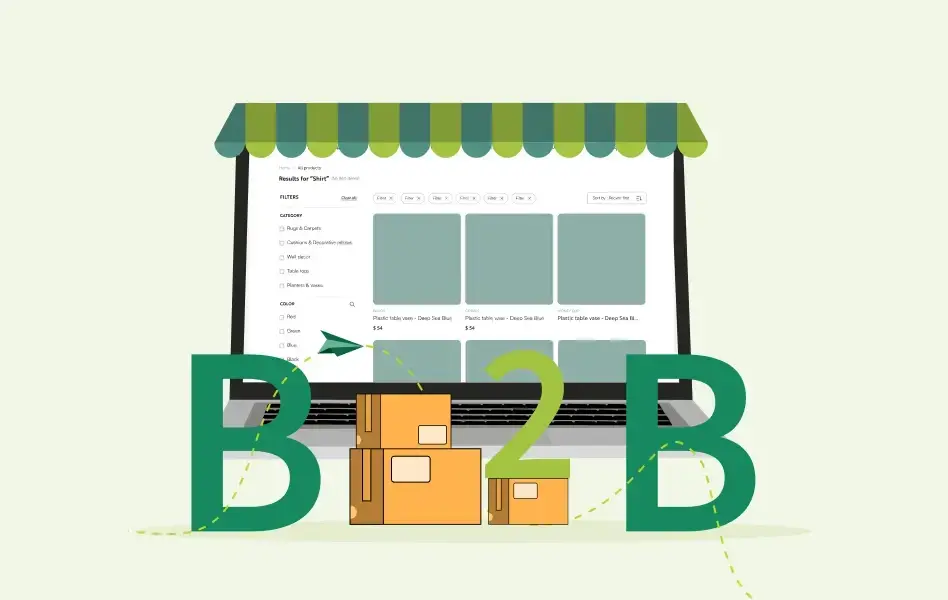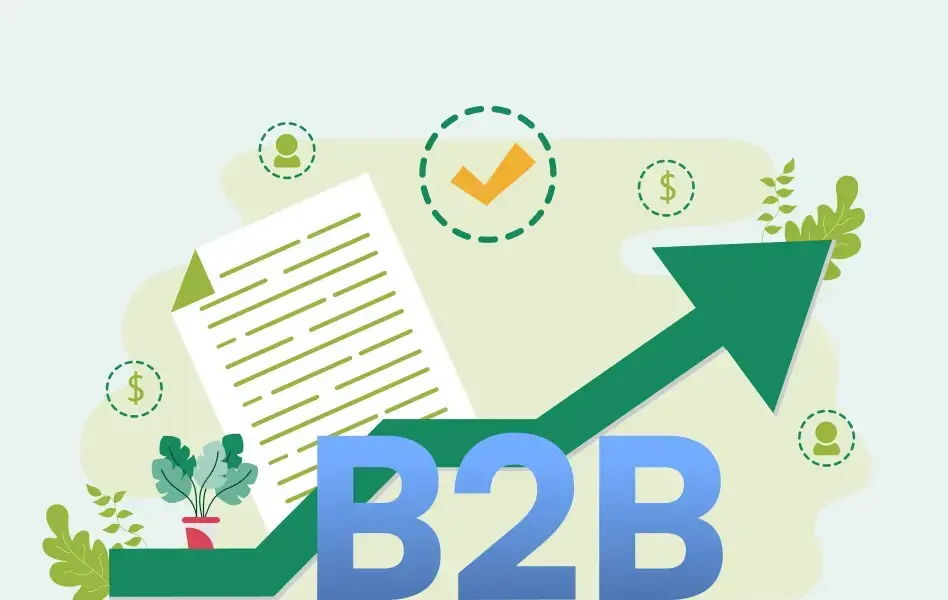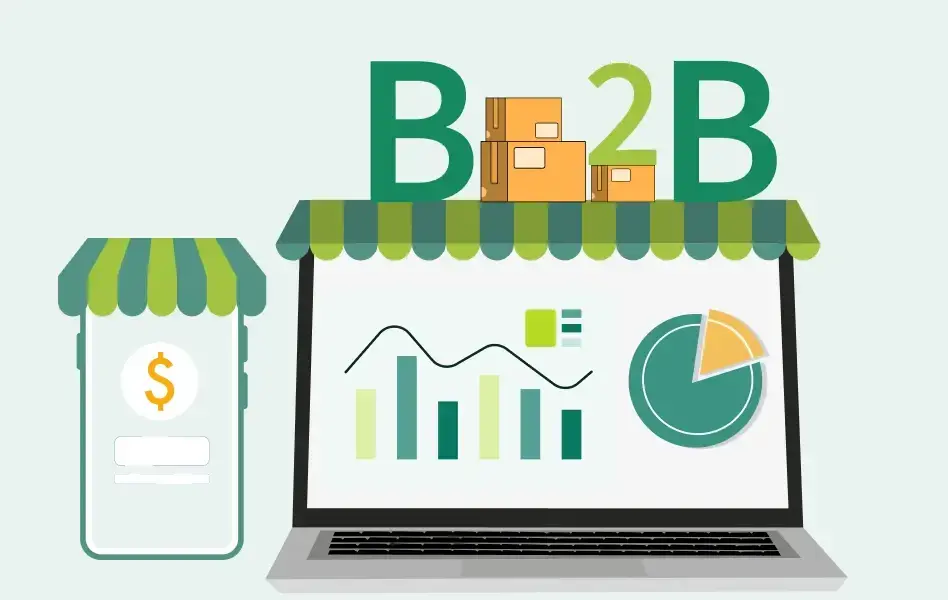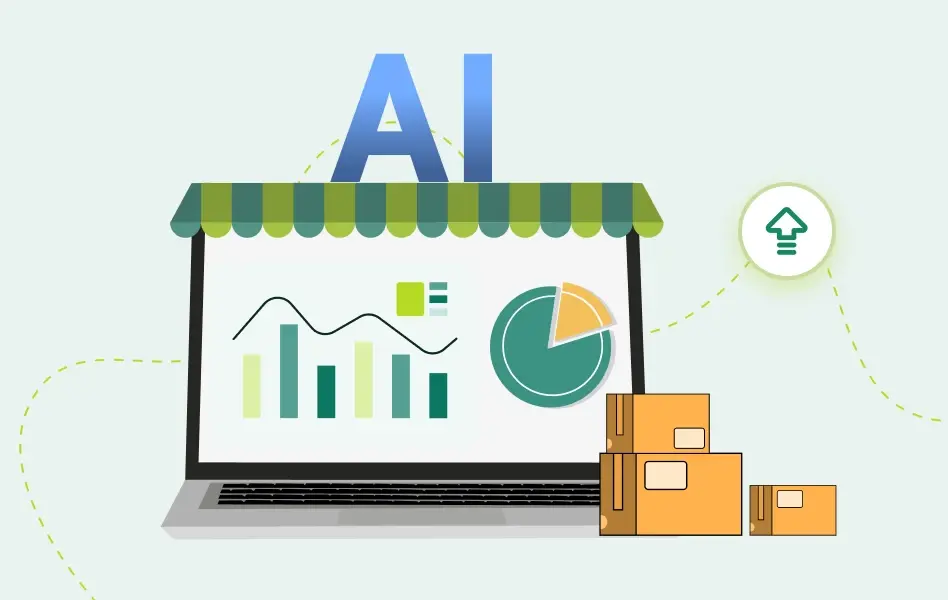Contents
- 1 Advantages of using online B2B marketplaces for business
- 2 Challenges of selling on online B2B marketplaces
- 2.1 1. Balancing growth with challenges
- 2.2 2. Remote sales dominance
- 2.3 3. Intense competition
- 2.4 4. Commission and fees
- 2.5 5. Limited control over branding and customer interaction
- 2.6 6. Complex transactions
- 2.7 7. Strict platform policies
- 2.8 8. Data dependency on third-party platforms
- 2.9 9. Longer payment cycles
- 2.10 10. Risk of price wars
- 3 Top online B2B marketplaces to find buyers
- 4 Strategies to become successful in online B2B marketplaces
- 5 The best solution is your own B2B ecommerce website
- 6 How WizCommerce empowers B2B sellers
- 7 Conclusion
- 8 Frequently Asked Questions (FAQ)
Millions of transactions occur daily on internet marketplaces, echoing with clicks and taps. These B2B ecommerce platforms serve as more than just exchange areas for internet companies. They are the starting points for firms to scale up and the arena where giants and small enterprises compete fairly. The Gross Merchandise Value (GMV) of the Top 100 online marketplaces reached an incredible $3.832 trillion in 2024, demonstrating the rapid growth of these online marketplaces for wholesalers.
Unlike B2C marketplaces, which cater to individual consumers, online B2B marketplaces are designed to meet the specific needs of businesses. They offer bulk purchasing, negotiated pricing, and long-term contracts. Now that we understand a B2B ecommerce marketplace, let’s explore some of its key advantages.
Advantages of using online B2B marketplaces for business
According to predictions, the global market for business-to-business (B2B) ecommerce is expected to reach a valuation of $26.163 trillion in 2023 and reach $56.921 trillion by 2028. As we enter the world of B2B ecommerce marketplaces, we are essentially exploring a dynamic environment where businesses buy and sell products or services online. Online B2B marketplaces function as digital platforms connecting companies, enabling them to conduct transactions efficiently and effectively.
Whether purchasing or selling, businesses can benefit significantly from using a B2B ecommerce marketplace. It simplifies many tasks, helps firms save costs, and attracts new clients. Let’s examine how:
Advantages for buyers
-
-
- Wider supplier network: Access a vast network of suppliers, allowing businesses to find the best sourcing options across the USA and beyond.
- Competitive pricing: Compare multiple sellers to find the best deals, ensuring cost savings and better profit margins.
- Centralized management: Handle everything from ordering to price negotiations in one place, streamlining operations.
- Product discovery: Easily find new and innovative products that can enhance business efficiency and operations.
- Trust and credibility: Utilize ratings and reviews to make informed decisions and select reliable suppliers.
-
Advantages for sellers
-
-
- Increased visibility: Gain exposure to a larger business audience, attracting more potential buyers.
- Lower advertising costs: Reduce marketing expenses by directly connecting with buyers in the marketplace.
- Scalability without overhead: Expand sales reach without the need for additional physical space or extra staff.
- Market insights: Access valuable data on trends, optimal pricing, and buyer preferences to make informed business decisions.
- Global reach: Sell to a worldwide customer base, extending business beyond local markets.
-
No wonder, online marketplaces offer a varied range of advantages to both sellers as well buyers. But just like any other business, this model also comes with its own challenges.
Ready to examine the other side of the coin? Let’s examine the challenges sellers face in B2B marketplaces.
Challenges of selling on online B2B marketplaces
Entering the B2B ecommerce marketplace can open up significant growth opportunities, but it also presents various challenges. Here are the key points to consider:
1. Balancing growth with challenges
While B2B platforms provide access to a wider audience, sellers must also navigate complex sales processes, high competition, and platform restrictions. Success requires a deep understanding of marketplace operations and strategic positioning to maintain profitability.
2. Remote sales dominance
With 82% of B2B revenue coming from remote transactions, businesses must optimize their online presence. Engaging buyers through digital catalogs, virtual consultations, and interactive content is essential for success in this evolving landscape.
3. Intense competition
Online marketplaces are crowded with sellers offering similar products. To stay ahead, businesses must differentiate themselves with competitive pricing, unique product offerings, and strong customer service, which requires continuous effort and investment.
4. Commission and fees
Many platforms charge listing fees, commissions on sales, or subscription costs. These expenses can significantly reduce profit margins, making it essential for sellers to carefully evaluate pricing strategies and cost structures.
5. Limited control over branding and customer interaction
Standardized marketplace structures restrict sellers from customizing store appearances and marketing efforts. As a result, businesses struggle to build brand identity and engage customers directly, limiting long-term relationships.
6. Complex transactions
B2B sales often involve bulk orders, contract negotiations, and customized shipping. Managing these complexities within a marketplace framework can be time-consuming, requiring businesses to invest in automation and efficient order management.
7. Strict platform policies
Marketplaces enforce stringent guidelines on pricing, product descriptions, and dispute resolution. Sellers must comply with these rules, limiting their ability to adjust pricing models or marketing approaches based on market demand.
8. Data dependency on third-party platforms
Since customer insights are controlled by the marketplace, sellers lack direct access to first-party data. This makes it challenging to create personalized marketing campaigns or build customer loyalty outside the marketplace.
9. Longer payment cycles
Unlike direct sales, online marketplaces often impose delayed payment terms, sometimes extending up to 30-90 days. This can create cash flow issues for businesses that rely on steady revenue streams for operations and growth.
10. Risk of price wars
With multiple sellers offering similar products, constant price undercutting becomes a challenge. Engaging in price wars can significantly reduce profit margins and affect long-term business sustainability if not managed strategically.
Top online B2B marketplaces to find buyers
Whether you’re a wholesaler, distributor, or manufacturer, finding the ideal marketplace can help you connect with the right customers while reducing marketing and operational costs. Below are some of the leading online B2B marketplaces that can help you grow your business.
1. Faire
Benefits:
-
-
- Simple setup: Faire offers a hassle-free setup with no upfront costs, subscription fees, or commitments for brands, providing a free storefront.
- Extended payment terms: Eligible retailers can benefit from 60-day payment terms, allowing them to buy now and pay later.
- Seamless integration: Faire instantly synchronizes orders, inventory, and catalogs to your Shopify admin, streamlining management from a single platform.
-
Considerations:
-
-
- While Faire Direct orders have a 0% commission, inbound orders through the B2B ecommerce marketplace incur commission fees and additional costs for managing returns.
- Sellers on Faire are required to list their entire catalog at consistent prices with other wholesale channels to maintain trust and consistency among retailers.
-
Price:
-
-
- 15% commission + $10 on marketplace opening orders
- 15% commission on marketplace reorders
- 0% commission on direct orders
-
2. Alibaba
Benefits:
-
-
- Global retailer network: Alibaba provides access to a vast network of global retailers seeking various products, offering immense market reach.
- Verified Brand Profiles: Alibaba verifies brands’ profiles before selling, instilling trust and credibility among potential customers.
- Multi-Language Support: Alibaba automatically translates B2B storefronts into 18 languages, enhancing accessibility and international expansion.
-
Considerations:
-
-
- Intense competition on Alibaba can make it challenging for brands to differentiate and stand out.
- Longer shipping timescales are expected, mainly as many retailers operate in Asia, potentially impacting customer satisfaction.
- Profit margins may be lower due to similar product listings, necessitating price competition among brands.
-
Price:
-
-
- Standard selling plan: $3,499 per year, including $500 in keyword advertising credits
- Premium plan: $10,999 per year, including $2,000 in keyword advertising credits and US-based customer support
-
3. Amazon Business
Benefits:
-
-
- Global reach: Amazon Business provides access to a vast global audience, maintaining Amazon’s reputation and supply chain network.
- Established user base: A significant percentage of buyers in the UK and the US make purchases through Amazon Business, offering extensive market reach.
- Convenient selling: Utilize Amazon’s infrastructure and interface for accessible product listing and transaction management.
-
Considerations:
-
-
- Intense competition on Amazon Business may make it challenging to differentiate and stand out among other sellers.
- Limited control over selling and communication with B2B buyers compared to standalone platforms.
- Some product categories may have restrictions on listing, impacting product availability and visibility.
-
Price:
-
-
- $39.99 per month subscription fee, plus referral fees starting from 8%, varying by product category.
-
4. Ankorstore
Benefits:
-
-
- Flexible payment options: Ankorstore offers B2B customers payment on delivery or 60-day terms, enhancing flexibility and convenience.
- Greater pricing control: Sellers have complete control over wholesale pricing with no restrictions, allowing for personalized inventory pricing.
- European presence: With customers and offices across nine European countries, including the UK, Germany, and Spain, Ankorstore facilitates regional market access.
-
Considerations:
-
-
- The minimum order value of £100, excluding VAT, may deter small businesses or first-time buyers from engaging with Ankorstore.
- Ankorstore’s focus on niche brands and independent retailers may limit its appeal to well-established and more prominent brands.
-
Price:
-
-
- 24% commission on opening orders
- 12% commission on subsequent orders
- No fee for directly invited B2B customers
-
5. Novi
Benefits:
-
-
- Aligned values: Novi connects with retailers that share similar core values, enriching trust and credibility.
- Expanded distribution: Expand your retail distribution to reach a B2B ecommerce marketplace or customers whose audience values sustainability and transparency.
- Credibility assurance: Novi verifies marketing claims, formula ownership, and sustainable packaging, providing a seal of approval for your sustainability claims.
-
Considerations:
-
-
- Novi’s market size may be smaller due to its focus on values, which potentially limits its reach compared to generic B2B marketplaces.
- Documentation and evidence are required to substantiate claims, ensuring accuracy and credibility.
-
Price:
-
-
- Pricing is available upon request.
-
6. eBay
Benefits:
-
-
- Massive buyer reach: Access to a global base of buyers, including small businesses and enterprises.
- Flexible selling options: Auction and fixed-price listings give sellers pricing flexibility.
- Business tools: eBay offers tools like multi-user account access, bulk listings, and business analytics.
-
Considerations:
-
-
- Less specialized for B2B transactions compared to dedicated B2B marketplaces.
- Seller fees can accumulate with final value fees, PayPal fees, and optional listing upgrades.
- Buyer reliability and returns can be harder to manage in B2B contexts.
-
Price:
-
-
- $21.95–$299.95/month for Business Store subscriptions
- Final value fees range from 2%–12%, depending on category
-
Feeling equipped with knowledge about the top marketplaces? Great! Now, let’s look at strategies to ensure you hit the ground running.
Strategies to become successful in online B2B marketplaces
Alright, you know where to sell, but how do you ensure you’re mastering these marketplaces? Deciding to start a new B2B business takes time. Following these B2B ecommerce practices may increase your chances of success and get you ready for launch.
1. Real-time inventory management
When exploring B2B ecommerce marketplaces, utilizing real-time inventory management software is crucial to ensure smooth operations. With platforms like Shopify’s B2B marketplace, you can streamline inventory management across all sales channels, preventing the frustration of selling out-of-stock items to potential buyers.
2. Elevating product management
In the dynamic landscape of B2B marketplaces, meeting the demand for expert knowledge from B2B customers is paramount. Implementing a strong Product Information Management (PIM) system is essential for efficiently managing a diverse product catalog across multiple channels. This software ensures data consistency by syncing critical product information, including SKU numbers, descriptions, and pricing structures.
3. Streamlining order fulfillment
Efficient order fulfillment is critical for success in B2B ecommerce marketplaces, where handling bulk orders poses unique challenges. Partnering with third-party logistics providers like Shopify Fulfillment Network is essential to ensure the timely delivery of products to B2B customers. These providers offer advanced fulfillment technologies and international warehouses, optimizing the fulfillment process.
Additionally, exploring fulfillment services provided by the chosen online B2B marketplace platform, such as Amazon Business’s Fulfilled by Amazon, further streamlines operations and enhances customer satisfaction and retention.
The best solution is your own B2B ecommerce website
While online B2B marketplaces offer immense opportunities, they also come with limitations—intense competition, platform fees, and restricted branding control. To truly succeed, businesses need a dedicated B2B ecommerce website that provides full control over operations, branding, and customer relationships.
Why choose a B2B website over marketplaces?
-
-
- Full control over branding & customer experience – Customize your website, showcase your products, and create a seamless buying journey without marketplace restrictions.
- No commission or marketplace fees – Keep more of your profits instead of paying high platform fees.
- Better customer relationships – Own your customer data and personalize marketing efforts to drive loyalty and repeat sales.
- Flexibility in pricing & negotiations – Implement custom pricing, bulk discounts, and tiered pricing models tailored to your buyers.
-
How WizCommerce empowers B2B sellers
WizCommerce, an AI-powered B2B ecommerce platform, is designed specifically for wholesalers, distributors, and manufacturers. It helps businesses overcome the challenges of marketplaces and build a future-proof online store with features tailored for B2B success.
Key features of WizCommerce:
-
-
- AI-driven product recommendations – Increase sales with personalized product suggestions.
- Seamless ERP & accounting integrations – Connect with QuickBooks, NetSuite, and other systems.
- Flexible pricing & customer-specific catalogs – Offer tailored pricing structures for different buyers.
- Automated order processing – Reduce manual efforts with smart workflows.
- Multi-user accounts & role-based access – Empower teams with controlled access levels.
- Freight & bulk order management – Simplify complex shipping and logistics.
-
Conclusion
Online B2B marketplaces provide businesses with a great way to reach new buyers, manage transactions, and scale quickly. Platforms like Amazon Business, Alibaba, and Faire simplify the selling process but come with significant challenges. High competition leads to price wars, marketplace fees reduce profit margins, and strict platform policies limit branding and customer relationships. Additionally, sellers must rely on multiple tools for inventory management, pricing optimization, and order fulfillment, making operations more complex and costly.
While marketplaces are useful, having your own B2B ecommerce website is the best long-term strategy. A dedicated platform gives you full control over branding, pricing, and customer relationships without marketplace restrictions. WizCommerce, an AI-powered B2B ecommerce platform, helps businesses streamline their operations, integrate with ERPs, and implement advanced features like custom pricing and AI-driven recommendations. Instead of depending solely on marketplaces, take control of your B2B growth with WizCommerce

